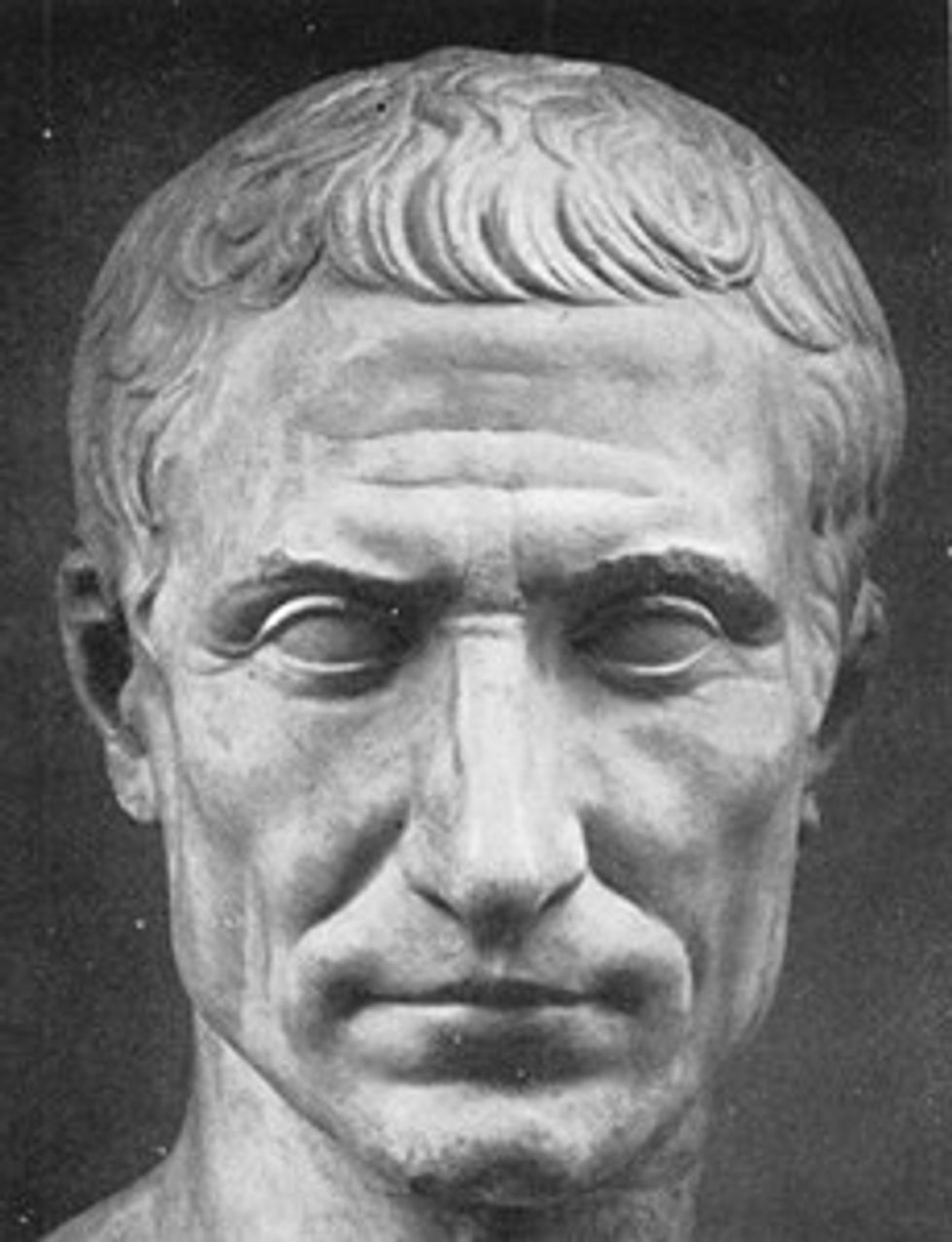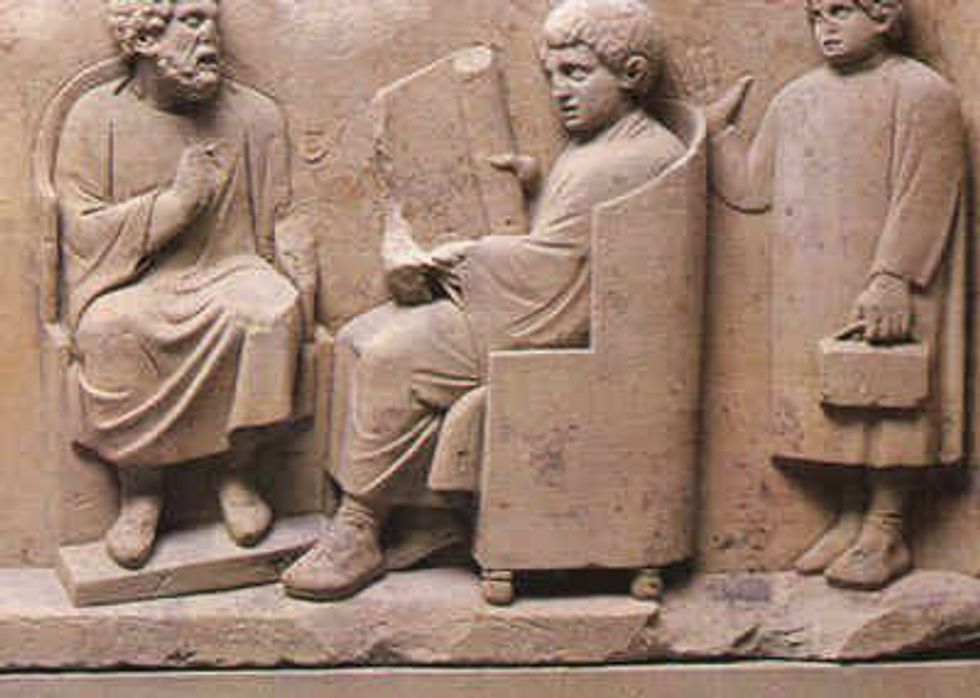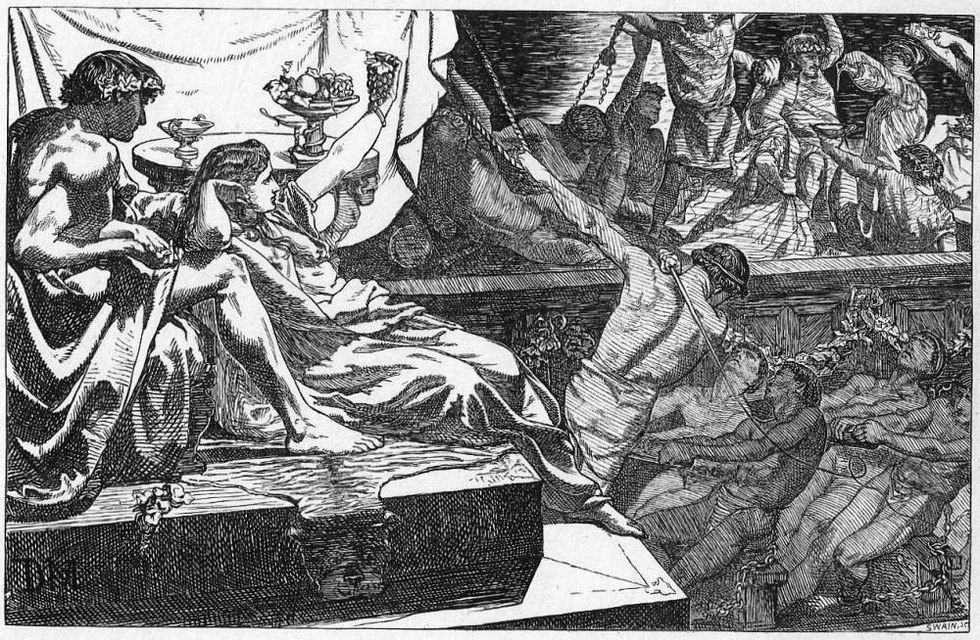It's almost the Ides of March again. At this point, nearly everyone knows that the Ides (the 15th) was the day Julius Caesar was assassinated by members of the Roman Senate in 44 B.C. Most people can even tell you that at some point, someone even told him to "Beware" of said day. Anyone can tell you about the Roman Civil War or his affair with Cleopatra. But these are only part of what makes Caesar such a fascinating and enduring character. So, during this week in which people will undoubtedly remember Caesar for his hubris and not a lot else, I felt the need to round up some of the least famous facts about a very, very well-known man.
Caesar Was Not A Rich Man
When one pictures Julius Caesar, there is usually some element of opulence. And, though he descended from the Julii clan, one of the oldest patrician families in Rome's history, the wealth and influence of his house had long since dwindled. However, even though they were not monetarily wealthy, the members of the Julii were afforded privileges reserved for those with such distinguished pedigrees, and Caesar was classically educated in both Rome and Rhodes.
Though he would later acquire wealth through political and military pursuits, Caesar's lack of ties with the aristocracy would serve him well, as he later sought to align himself with the commoners, or plebians.
His Great-Grandma was Who?
As fore mentioned, the Julii clan had long since lost its fortune. However, their bloodline was something that could never be taken away, and they laid claim to some pretty impressive ancestors. One stands out as particularly fantastic, though. While their records includes some of the founding kings of Rome, no one can outshine the original matriarch in their family tree- Venus, herself. Yes, Caesar's distant relative, the genesis of his family line, was the goddess of love and beauty. He was proud of this ancestry, even placing her on his coins. However far-flung it may seem, this argument lent credibility to the idea of Caesar as Rome's divine savior.
Caesar and the Pirates
Early in his life, while crossing the Aegean Sea, Caesar was kidnapped by pirates. Ever the level-headed negotiator, young Julius kept calm, engaging his captors. When the pirates demanded twenty talents of gold for his return, he famously suggested that they up their price to 50 talents. Caesar also promised the pirates that when he became free he would return and crucify them for their crimes against him. The pirates thought he was joking, but he most certainly was not. As soon as the ransom was paid, Caesar raised a fleet and hunted them down. He kept his promise, crucifying every last one of them. He cut their throats beforehand, though, as a favor for their fair treatment of him while in captivity.
Caesar was awriter, and he was funny!
There are countless books written about Caesar, but why not read a book by Caesar, himself? His drawn out campaign in Gaul allowed him time to document his travels and experiences in the west within the eight books of "The Gallic Wars." The text contains not only copious amounts of military information, but also includes Caesar's observations of life and the Gallic people, including a description of the original pagan Burning Man ritual. Later he would describe the tumultuous years over which he captured Rome in "The Civil War." He left behind multiple works that highlight his sensible nature, illustrated by a total lack of mention of the gods within his writing. Most amusing, however, are his personal letters to his friends and rivals, specifically those to notorious wind-bag and critic Cicero, whom Caesar mockingly praises for so "concisely" stating his grievances against the ruler. Ancient Roman burn!
Famous Last Words
"Et tu, Brute?" We've all heard it, and I'd be willing to guess that most adults, if asked about Caesar's last words, would jump right to this phrase. The problem is, he never really said this. We have Shakespeare to thank for this great historical misquote, as the bard needed something dramatic for Caesar to implore of Brutus as he landed the finally blow. "And you, Brutus?" It's not like Shakespeare pulled it out of thin air. The writings of Suetonius suggest that someone who was there heard Caesar say this, although they heard him say it in Greek, not Latin. Suetonius himself makes no claim either way. Furthermore, Plutarch, a thoroughly reliable source, reported that Caesar said nothing as he lay dying, choosing simply to cover his face with his toga in final grasp at a dignified death.























